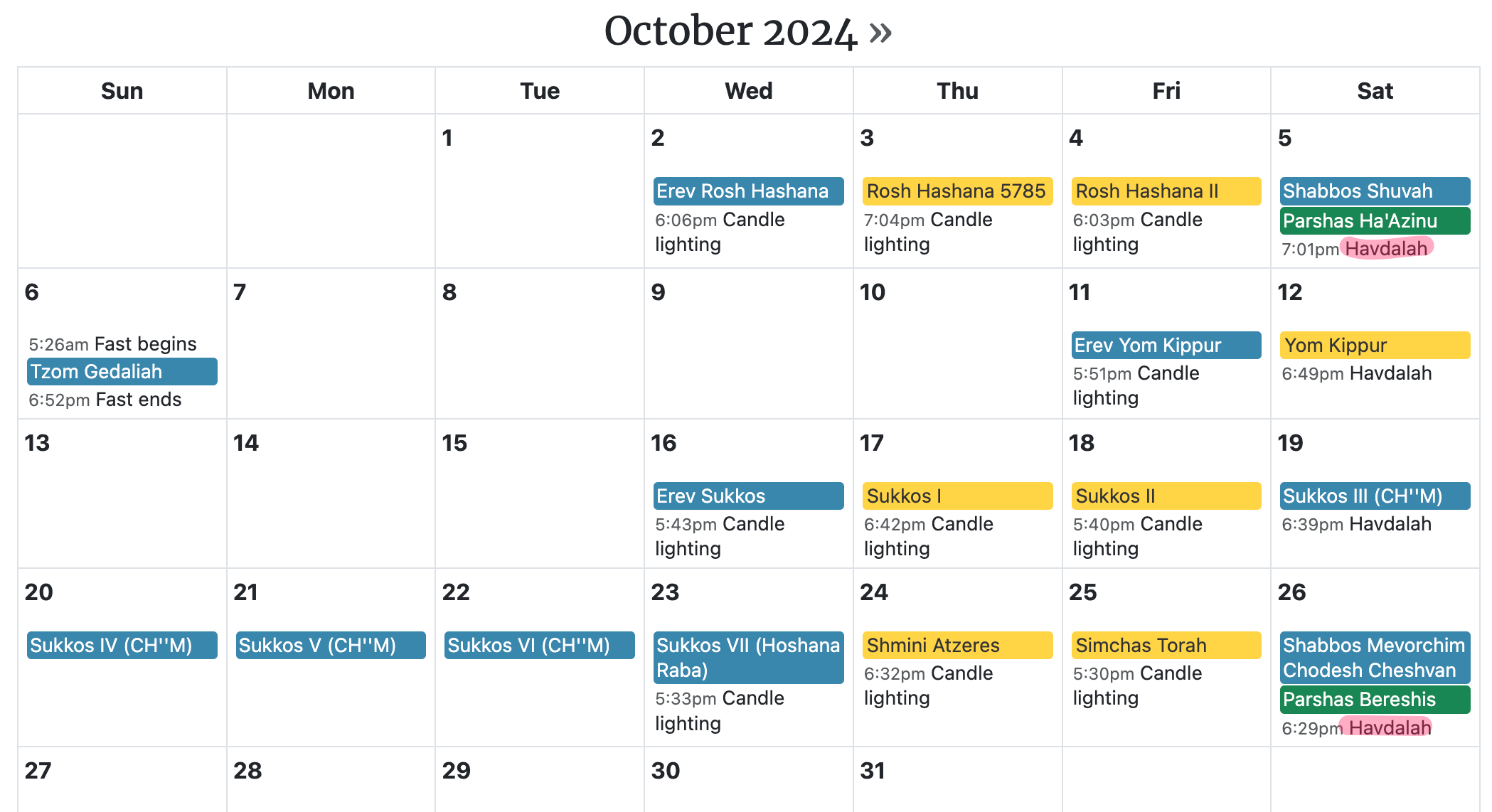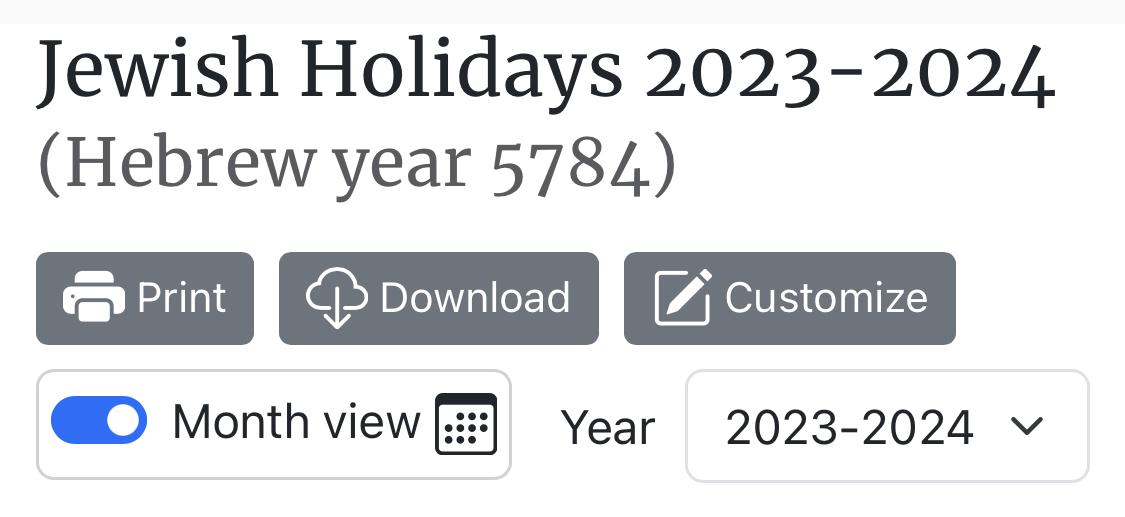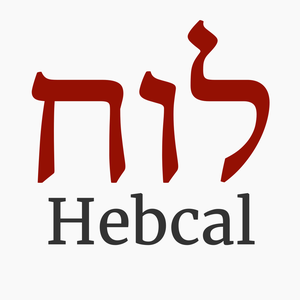Your comments
Thanks for using Hebcal, and we're sorry to hear you are having trouble download Shabbos times!
Calendars created by Hebcal are designed to be imported into various calendar apps, including iPhone, Google Calendar, Outlook PC, Outlook Web, macOS Calendar, and any app that supports iCalendar (.ics) feeds or subscriptions.
Please follow the step-by-step instructions for the app that you use to ensure that Shabbos times appear in your download.
Hi, thanks for using Hebcal!
You are correct that Hebcal does not list Havdalah times on Friday night October 4, 2024 (at the conclusion of the second day Rosh Hashana) or on Friday night October 25, 2024 (at the conclusion of Simchat Torah). This is intentional and is not an oversight. Because in year 5785 the holidays end on Friday night as Shabbat is coming in, we don't do Havdalah until Shabbat concludes on Saturday night.
Note Havdalah on Saturday night, highlighted in pink below:

Wishing you a good month of Elul and a happy and healthy 5784.
Thanks for the feedback!
To view holidays in chronological order (not dividend by sections like major/minor/modern) you can toggle the "month view" switch at the top of the page

Hi, thanks for using Hebcal!
Setting a default alert is something you can configure in your calendar app. For example, here are some articles that are specific to iPhone, Mac, and Google Calendar
https://www.idownloadblog.com/2018/06/26/change-create-iphone-calendar-alerts/
https://support.apple.com/guide/calendar/change-default-alert-settings-icl4407ddb59/mac
https://www.lifewire.com/specify-default-reminders-for-a-calendar-in-google-calendar-1172186
Thanks for using the Hebcal APIs.
Can you please post a snippet of code? This would help with debugging. We don't have the context you have when you write "item 3 on the page" and other things, so it's difficult to help you.
Thanks for the feedback! We checked the Stone Chumash and see that they agree with you.
We are in the process of changing this on the website to use Tazria, not Sazria.
We have added an initial version of the Daf-a-Week calendar on Hebcal
https://www.hebcal.com/learning/2023-08-20
You will find a calendar feed available for download here as well:
A learning program that covers a page of Talmud a week. By going at a slower pace, it facilitates greater mastery and retention.
365 events per year · 5-year perpetual feed
https://download.hebcal.com/ical/daf-weekly.ics
Please take a look and let us know if it works for you!
Shabbat Shalom
Thank you for this suggestion! We will work on adding this in the coming months
We will plan to use this source, which also matches the Sefaria calendar
Our favorite source for Torah is Sefaria
Customer support service by UserEcho


Hello, thanks for using Hebcal.
We haven't implemented a way to delete a Yahrzeit calendar (this is on our TODO list) but you can remove all of the names from an existing calendar and it will remove the data from our servers.
Shabbat shalom!